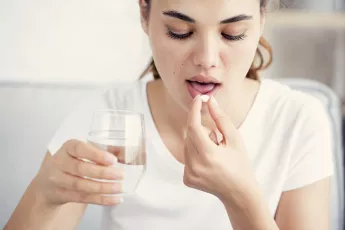2024: What women know (and don't know) about their vaginal microbiota International Microbiota Observatory
A major international survey on microbiota, the International Microbiota Observatory, has been carried out by the Biocodex Microbiota Institute and Ipsos. What do women know about their microbiota, and more specifically the vaginal microbiota?
- 1. The vaginal microbiota: an organ that remains poorly understood despite some progress
- 2. More good behaviour, even if some bad practices persist
- 3. Women want more information about the vaginal microbiota from Health Care Professionals
- 4. Mothers and women aged 25-34 are more aware than their elders
- Methodology
The second wave of this study once again highlights a lack of knowledge among women about the vaginal microbiota, which remains largely unknown. However, it also highlights the fact that knowledge and behaviour are improving this year, thanks to growing awareness among healthcare professionals. This awareness must now be strengthened and extended to all women, particularly older women.
1. The vaginal microbiota is still poorly understood, even if knowledge is progressing this year
Only 1 in 5 women claim to know exactly what the vaginal microbiota is
But it remains low: nearly half of women have never heard of vaginal microbiota (48%, -5 points vs. 2023, compared with 51% of men and women combined).
Even if knowledge of the term remains superficial: only one woman in two knows exactly what vaginal flora is (53% compared with 42% for both men and women).
Some knowledge of certain characteristics of the vaginal microbiota:

Almost 7 out of 10 women (69%) are aware that antibiotics can alter the vaginal microbiota.

69% know that vaginal dryness/dehydration has an impact on the vaginal microbiota.
Knowledge is still too low, but has improved since last year:

55% of women are aware that from childhood to menopause, a woman's vaginal microbiota does not remain the same.
(+6 points vs 2023)
44% know that bacterial vaginosis is associated with an imbalance in the vaginal microbiota (+8 points vs 2023).
Only 1 in 2 women is aware that smoking has an impact on the vaginal microbiota.
3 out of 10 women know that the vaginal microbiota is balanced when its bacterial diversity is low (30% ; +2 points vs 2023)
know that the intestinal microbiota influences the vaginal microbiota.

The vaginal microbiota
Learn more2. This year, more and more women are adopting behaviours aimed at preserving the vaginal microbiota, even if certain bad practices persist.
The adoption of behaviours designed to protect the vaginal microbiota is mixed: while a high proportion of women wear cotton underwear (86%, +2 points vs. 2023), other beneficial behaviours are less widely adopted.
of women surveyed wear cotton underwear (+2 points vs 2023)
2 out of 3 women avoid self-medication*
and 3 out of 5 use a soap-free cleansing solution (+3 points vs 2023).
*Self-medication is the use of a medicine by a person on his or her own initiative, for the treatment of simple and already known symptoms or benign illnesses.
Certain behaviours that are harmful to the vaginal microbiota remain anchored in women's practices, despite a reduction compared to last year.
more than 2 in 5 women take vaginal showers (-3 points vs 2023)
sleep in underwear (+1 point vs 2023)
3. An increasing awareness among healthcare professionals, which must be stepped up to meet women's needs
Healthcare professionals' work in raising awareness of vaginal microbiota is progressing this year.
of women have had explanations of what the vaginal microbiota is.
(+7 points vs 2023).
Nearly half of the women were made aware of the importance of preserving their vaginal microbiota as much as possible.
(+8 points vs 2023).
say that a Health Care Professional has already explained to them the right behaviours to adopt in order to preserve their vaginal microbiota as much as possible
(+7 points vs 2023).
Although these advances are significant, they only concern a minority of women, there is room for improvement in the information provided by healthcare professionals about the vaginal microbiota.
This is all the more true given the widespread demand from women for such information:
88% of them would like to be better informed about the importance of the vaginal microbiota and its impact on health (+2 points vs 2023).
4. Age, a determining factor in vaginal microbiota knowledge: women aged 60 and over are less aware, unlike 25-34 year olds and young mothers.
Once again this year, women aged 60 and over are the least informed and the least aware of the vaginal microbiota, even though they are more exposed to health problems.

Only 41% of women aged 60 and over know what the vaginal microbiota is, compared with 52% of women overall.
They also lack knowledge about the role and functions of the vaginal microbiota:

Less than half of women aged 60 and over (49%) know that the vagina is self-cleaning (compared with 56% of women overall).
Only 39% are aware that bacterial vaginosis is associated with an imbalance of the vaginal microbiota (compared with 44% of women overall).
Despite these shortcomings, women aged 60 and over stand out for adopting certain behaviours aimed at preserving the balance of the vaginal microbiota:
3 out of 4 avoid self-medication. (vs 63% of all women)
avoid taking vaginal douches. (vs 58% of all women)
However, fewer women use a soap-free cleansing solution (56%, compared with 61% of all women) and sleep without underwear (43%, compared with 47% of all women).
A population with a lower level of education from healthcare professionals: only a third of women aged 60 and over have had the vaginal microbiota explained to them by a healthcare professional (32%, compared with 43% of all women).

"Have you heard of "dysbiosis"?
Learn moreWomen aged between 25 and 34 and mothers of children under the age of 3 appear to be more informed and aware of the vaginal microbiota.

62% of 25-34 year-olds and 60% of mothers of children under 3 know what the vaginal microbiota is (compared with 52% of all women).

Better knowledge of vaginal microbiota: 69% of 25-34 year-olds and 67% of mothers are aware that each woman has a unique vaginal microbiota (vs. 64% of women overall).

They are also more likely to know that the vagina is self-cleaning: 61% of 25-34 year-olds and 60% of mothers know this (compared with 56% of all women).
More of them have adopted certain behaviours that are beneficial to their vaginal microbiota:
of mothers of children under 3 use a soap-free cleansing solution, a practice that is beneficial for the vaginal microbiota
of 25-34 year olds
of those aged 60 and over
54% of 25-34 year-olds and mothers of children under 3 sleep without underwear (compared with 47% of all women).
54% of 25-34 year olds and 55% of mothers of children under 3 have received information from a healthcare professional about the vaginal microbiota (vs. 43% of all women).
Methodology
This second edition of the International Microbiota Observatory was conducted by Ipsos on 7,500 individuals across 11 countries (France, Spain, Portugal, Poland, Finland, Morocco, the USA, Brazil, Mexico, China, and Vietnam). Four new countries were included in this second edition: Poland, Finland, Morocco, and Vietnam.
The survey was conducted over the Internet between January 26 and February 26, 2024. For each country, the sample is representative of the population aged 18 and over in terms of :
- gender
- age
- profession
- region
Representativeness was ensured via quota sampling, the most commonly used sampling method for obtaining a representative sample of the population studied. The quota variables for each country were gender, age, region, and socio-professional category. The data were adjusted:
- within each country, again to ensure that each population is representative
- globally, so that each country has the same weight. Statistical analyses were carried out using Cosi software (M.L.I., France, 1994), with a significance level of 95%
The survey population was 48% male and 52% female. The average age was 46.1 years. The sample of 7,500 individuals made it possible to carry out a detailed analysis by age group:
- 18-24
- 25-34
- 35-44
- 45-59
- 60 and over
Changes from one year to the next have been measured on a like-for-like basis, i.e. calculated taking into account only those countries present in both the first and second editions of the survey. While we do have results for the new countries included in this second edition (Poland, Finland, Morocco, and Vietnam), they have not been taken into account when calculating trends, since they were not included in the first edition of the survey.
The questionnaire includes 27 questions on:
- socio-demographic data
- the level of knowledge about microbiomes
- the level of and desire for information from healthcare professionals
- the identification and adoption of behaviors designed to combat microbiome imbalances
- the level of knowledge, information, and behaviors of women about the vulvo-vaginal microbiome
- health data
The questionnaire lasted ten minutes and the 7,500 individuals had to complete the entire questionnaire in order to be included in the survey. The terms used in the questionnaire to talk about the microbiome have been translated and adapted to the terms used in each country.
Recommended by our community

"I would like to express my gratitude to the Biocodex Microbiota Institute and the International Microbiota Observatory for their valuable work in researching and raising awareness about the vaginal microbiota. These efforts are essential in continuing to educate and empower women, fostering greater knowledge about such a crucial aspect of their health." -@Nevenka Karanović, MD (From Biocodex Microbiota Institute on LinkedIn)




